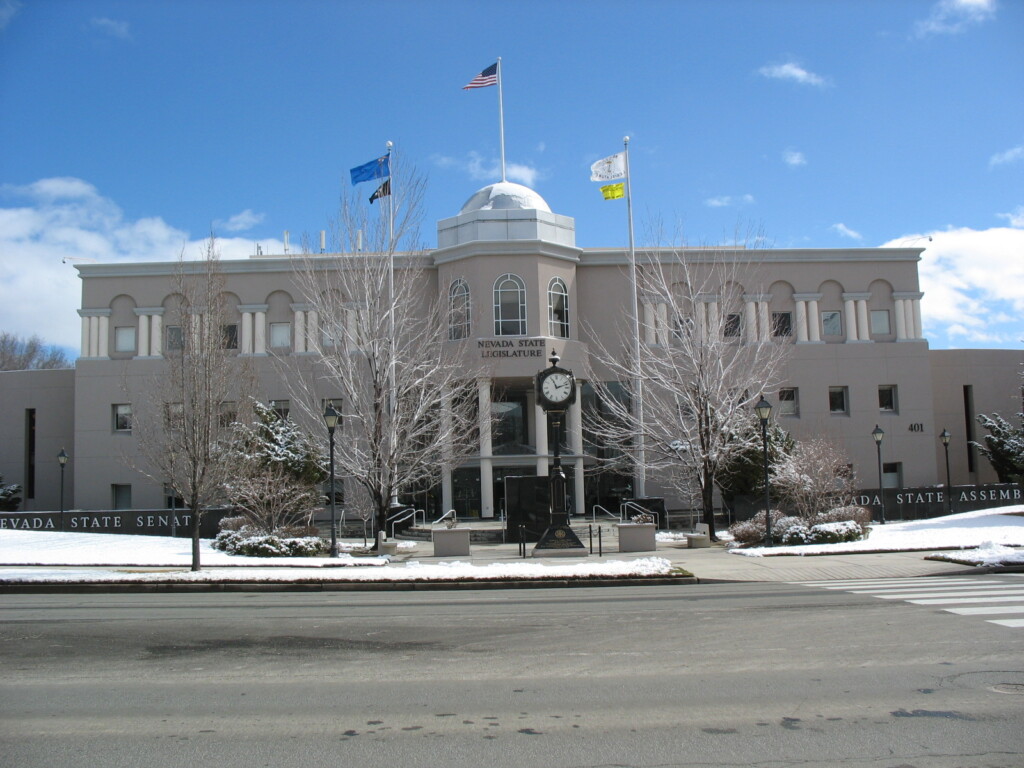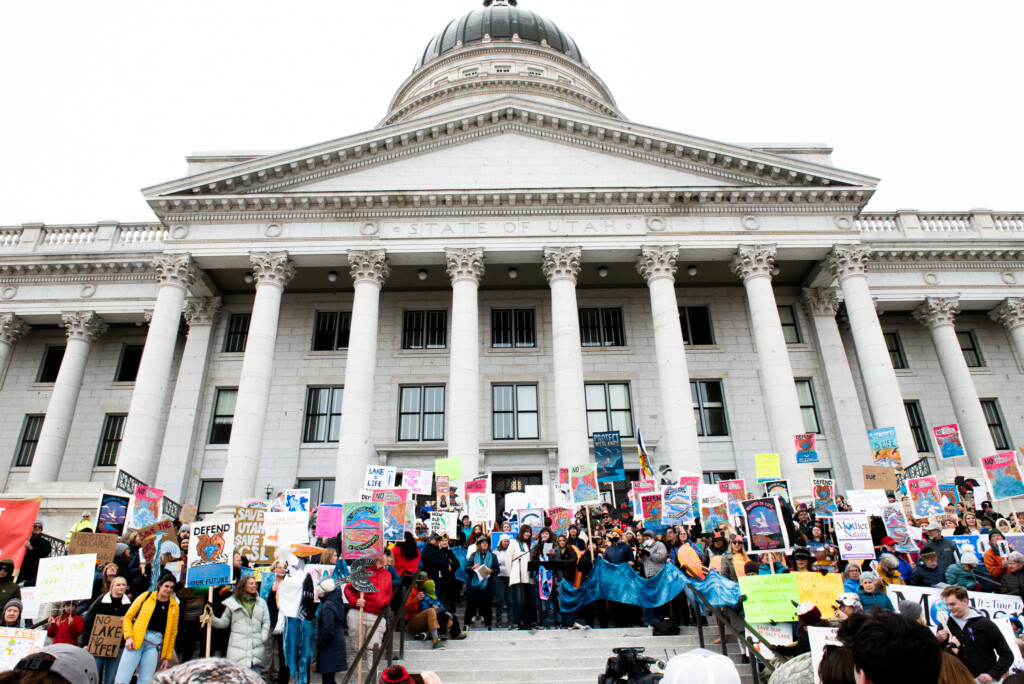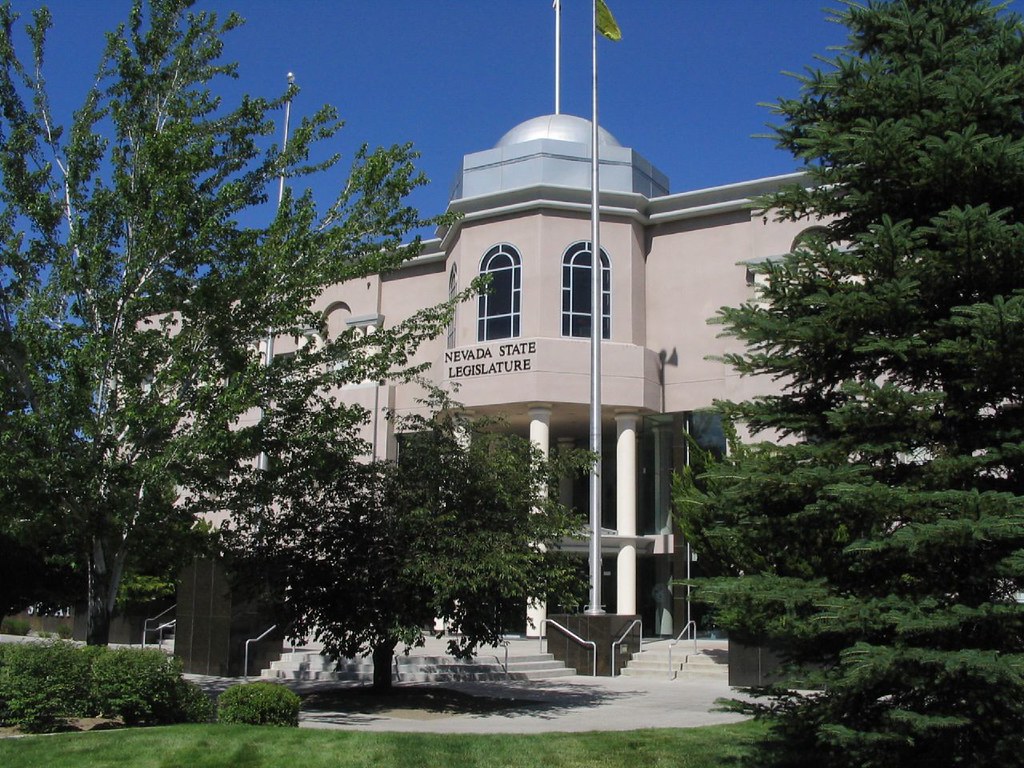
Keep a close eye on these bills working their way through the statehouses in the nation’s driest states.
In Nevada, watch AB109, AB134, AB9 and AB104. These are the efforts that will focus on conserving and protecting the resources of the nation’s driest state.
AB109, WATER FAIRNESS ACT: This bill requires that all entities filing for water rights all go through the existing process outlined in statute.
Right now, novel technologies used for mining and geothermal operations do not have to file for a permit when applying for groundwater like a farmer or hard-rock miner would. We believe that this loophole threatens existing water users’ due process rights and the property rights associated with water use in the state. The current carveout also threatens the public interest by impacting springs that wildlife and livestock depend upon.
Legislation we’ve worked on with Assemblywoman Selena La Rue Hatch will protect those rights and ensure that no water user gets a pass from regulatory review.
Entities that need the waters of the state of Nevada for their specific purpose must comply with the bedrock statutory tenets of appropriation. Right now, technologies like direct lithium extraction and pumping for geothermal resources, which MIGHT NOT consume water but require large quantities of it before re-injection, do not have to file important information with state water regulators and receive a permit to pump.
AB109 will ensure better public participation, water accounting, and outcomes for all living things that depend on the scare resource.
We have seen non-consumptive uses of groundwater harm existing rights holders and the environment. AB109 fixes that.
Just because an entity returns groundwater to the source doesn’t mean that the source isn’t harmed. Aquifers are sensitive and changeable hydro-geologic phenomena. Large-scale pumping for non-consumptive use projects already have and will commit avoidable harms in the future.
There will be opposition to this proposal — who would want their loophole closed? However, some of the oldest water rights in Nevada are for non-consumptive hydropower projects along the Truckee River. Permits for non-consumptive uses are not new. But some entities with carve outs want to keep the lack of oversight.
Lawmakers must recognize that industries with little consumptive use can still harm Nevadans’ due process rights, water rights, and public interest rights.
We are not asking for special treatment for select industries. We are asking for parity with all other water users. File an application and endure the regulatory review — just like everyone else.
- The majority of water users in the state (including hard rock mining, hydropower, agriculture and more) already undergo a process of review by the State Engineer and this bill will not change that process.
- Currently some non-consumptive water users don’t have to undergo permitting for geothermal and mining. But others, like hydropower, do have to undergo the permitting process.
- Nevadans have had their springs go dry, property harmed, and public interest resources impacted because of non-consumptive uses that have gone un-permitted.
- The bill requires the State Engineer to consider if water is available, if an appropriation will impact senior rights, and if an appropriation will harm the public interest.
- This important statutory safeguard will ensure that Nevada is better accounting for potential impacts to private property, due process, and public interest rights.
AB134, WATER CONSERVATION PLANS: There has never been anything like this proposed in Nevada. But the fact is, we need solutions that rural Nevada water users will use to limit conflict in communities and water systems in the future. Certain interests are trying to conflate and disrupt what we want to achieve. And we will work with stakeholders to provide clarity and certainty to all. But simply put, the bill works to convey these concepts:
- For entities that make demonstrable investments in water conservation practices, this bill would protect the conserved or saved portion of their right from use-it-or-lose-it provisions in the law.
- The bill prohibits entities from “conserving” the entire amount of a permitted, certificated, or vested water right. This prevents abuse from speculators.
- This bill offers alternatives to buy-and-dry proposals that take water and people off the land, invite invasive weeds, and upend rural community dynamics.
- These provisions are voluntary and limited for up to 10 years. Renewals would be allowed after the terms of the Water Conservation Plan expire.
- After expiration of a Water Conservation Plan, a water user could resume putting that water to use again for non-conservation purposes.
- The proposal respects the principle of “enlargement,” which means another water user couldn’t use the “conserved” or “saved” water that’s flowing downstream.
AB9, EXPANDING EXISTING WATER CONSERVATION INITIATIVES: This will likely be a vehicle for expanding existing conservation programs. Today, agricultural interests can temporarily take water out of production for the benefit of wildlife and hydrologic systems.
While the current bill draft expands the timeframe for transitory conservation, GBWN is in negotiations with water users and officials to expand the program while also putting on sideboards that could limit speculation and profiteering.
GBWN’s founders worked to get the basis of the existing program passed in 2007. Today, we know more about the needs of water users and hydrologic systems, giving us a unique ability to continue the work of ensuring we do what’s best for communities and the natural world.
AB104, WATER OMNIBUS: GBWN has been involved with water users, officials and other stakeholders on the development of water rights retirement programs and other conservation efforts. Thanks to a flood of COVID money, Nevada did implement — through administrative channels — a program to buy back water rights from individual users across the state. However, there were some lessons learned in the process that warrant a solid statutory framework that could guide more taxpayer-funded buybacks in the future (good luck finding the money right now, though).
An important discussion in this bill is: If the state retires water under this program with taxpayer dollars, will the state allow another entity to go into a basin and pump water? Water accounting is a lot easier on paper than it is underground. Water drops don’t come with airtags and GPS trackers. We believe that any new pumping should not impact the effects of buybacks and must be considered carefully. This proposal does not request any funds for buybacks.
The omnibus proposal also addresses cleaning up existing language on other conservation proposals related to turf removal and septic system conversions in Las Vegas championed by the SNWA (GBWN supported and worked on these proposals in 2021’s AB356 and 2023’s AB220).

UTAH BILLS
In Utah, we are still waiting for some of the bigger bills that deal with water for lithium mining and other novel extraction techniques that require vast sums of groundwater.
As it relates to some good old-fashioned conservation measures remember these bill numbers: HB318, HB328, HB330.
This is a trifecta of urban/suburban water conservation proposals focusing on new developments and sales of sprinklers from Rep. Doug Owens. This isn’t as sweeping as what Nevada did in years past on turf removal. But it is significant for beginning a mindset change in the Great Salt Lake Metropolitan Area, which heavily relies on rivers that feed the eponymous lake and significant importations of the Colorado River System via the Duchesne and Green Rivers.
HB318, RESIDENTIAL GREEN LAWN LIMITATION: The bill addresses green lawns for new single-family homes in the Great Salt Lake Watershed — Wasatch front communities in the Bear, Jordan, Weber, and Tooele drainages, among others.
If a new house is built on a lot that is a ninth of an acre, then there cannot be more than 600 square feet of turf. For larger lots, turf can’t exceed 15 percent of the square footage. In these new developments there can’t be roadway medians with grass. This applies to new builds in unincorporated and municipalities in the region.
HB328, NON-RESIDENTIAL LANDSCAPING LIMITATION: This bill tackles landscaping water from Rep. Owens that applies only to municipalities and counties in the Great Salt Lake Watershed and its respective drainages (as described above).
The bill requires prohibits owners of specified land — new developments in commercial, industrial, institutional, mixed use, and multifamily — from using overhead spray irrigation nozzles.
This means that if you want to water plants or grasses, an entity will need drip lines. But there is a carveout for outdoor activity areas like ballfields, community gardens, parks, and, of course, golf courses.
HB330, SPRINKLER NOZZLE BAN: The bill outlaws the sale of residential/commercial sprinkler systems that do not comply with the EPA’s WaterSense Specification for Spray Sprinkler Bodies, Version 1.0.

